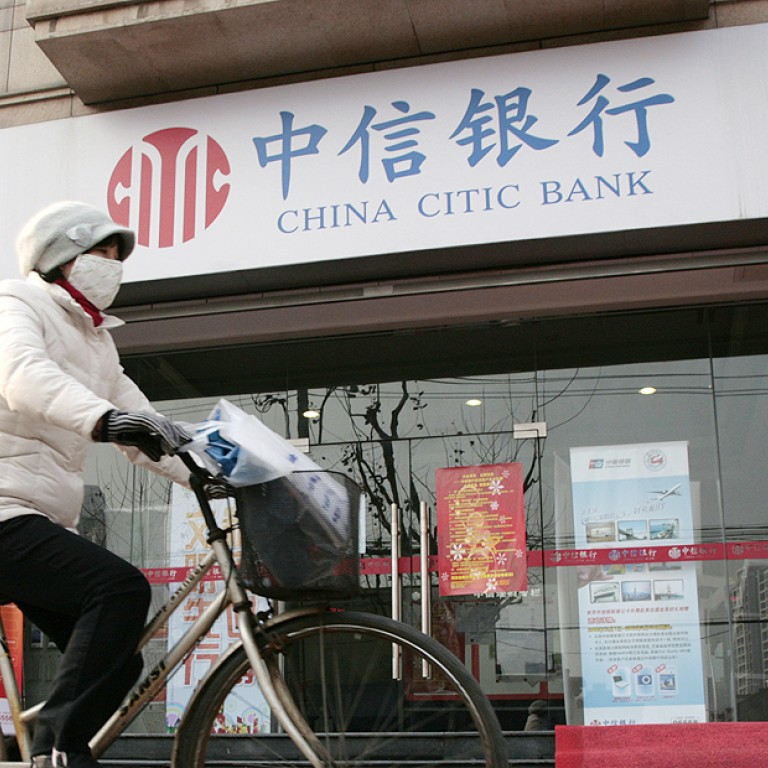
Update | Like Bank of China, Citic Bank also offers service branded 'money laundering' by CCTV
CCTV accuses Bank of China of providing money laundering service
A day after Bank of China (BOC) was accused by the state broadcaster of breaking foreign exchange rules by helping people take money out of the country, it has emerged a second state bank has also been offering the service.
Industry sources told the yesterday that China Citic Bank - controlled by the Citic Group, which in turn is directly controlled by the State Council, China's cabinet - also facilitated the movement of currency overseas, including Hong Knog.
"It is definitely not an illegal business," said one source.
"Both BOC and Citic Bank have been able to do this business only after they got approval from the Guangzhou branch of the People's Bank of China. So the PBOC definitely knows what the business is about," said the source, who declined to be named as he was not authorised to speak to the media.
"If there is any problem, it should not be a problem about whether this business is legal or illegal but more about how exactly the business is done, especially about internal risk controls and customer background checks at those banks."
Repeated phone calls by the to Citic Bank went unanswered.
Another source said Hong Kong regulators were unlikely to get involved because the issue did not violate local laws against money laundering.
"The case is not about money laundering but more about whether the mainland banks have got the authorisation to transfer money out of the country," the source said.
A Hong Kong Monetary Authority spokeswoman said: "The mainland authorities and banks should be responsible for verifying whether the transactions undertaken are in compliance with the relevant rules and requirements on the mainland."
On Wednesday, CCTV aired footage showing an employee of a BOC branch in Guangdong coaching an undercover journalist on how to channel large sums of money overseas.
Under Chinese law, citizens are allowed take only the equivalent of US$50,000 out of the country each year.
CCTV accused the bank of "blatantly offering money laundering services" and fabricating information through its money transfer platform Youhuitong.
Watch: China's state-run CCTV accuses Bank of China of money laundering
BOC said the Youhuitong service was part of a legal pilot scheme launched in 2011. It said the CCTV report "deviated from the facts" and had a "biased understanding" of Youhuitong.
On the sidelines of the Sino-US strategic and economic dialogue in Beijing yesterday, PBOC Governor Zhou Xiaochuan said the central bank would need more time to investigate the situation.
Analysts cast doubt on whether such a scheme that allowed for free currency exchange could exist. "The government is very concerned about hot money flows," said Teo Weechoon, a forex analyst at Nomura in Singapore. "If there was a pilot programme like this, I don't think the limit would be much higher than it already is."
Industry sources said BOC and Citic Bank were chosen by the Guangzhou branch of the central bank in late 2011 and late 2012 respectively to join the pilot programme, which was part of Beijing's efforts to better manage its huge foreign exchange reserves - the world's largest at over US$4 trillion.
A report by the official yesterday said China Construction Bank also offered similar services.
Shares in BOC have fallen 3.6 per cent in Hong Kong since CCTV aired the report. Citic Bank shares closed down 0.42 per cent yesterday. The Hang Seng Index rose 0.27 per cent.
Follow the reporters on Twitter: @donweinland, @keiralulu and @george_chen


